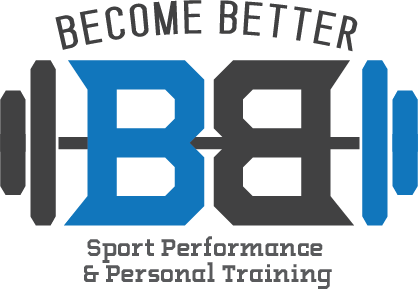You Can’t Out-Exercise a Bad Diet
A common misconception many clients who want to lose weight have is that they can just go to the gym and work out hard to achieve their weight loss goals without paying any attention to their nutrition. It is pretty common for a person to ask, “Why have I not lost weight? I’m in the gym 4x/week and I work my butt off every time!” Exercise is much less than half of the battle when it comes to losing weight. It is much more about how many calories you are consuming on average per day than it is about how hard or how often you are working out. When confronted with this fact, a common response is “Well I barely eat anything and I still don’t lose weight! Watch, I’ll write down everything that I eat tomorrow and show you!” This article will cover the basics of weight loss.
Weight loss occurs as a result of your body being in a negative energy balance for extended periods of time. This is just a fancy way of saying that in order to lose weight, you must consume fewer calories than you utilize every day (total daily energy expenditure, or TDEE). It is impossible to lose weight if your body is not in a negative energy balance. IMPOSSIBLE. Even if you are exercising for an hour and a half every single day of the week, if your energy balance is positive or neutral then you will not lose weight. There is no way around this fact.
As an aside, most people overestimate how many calories they burn during exercise. If you don’t believe me, hop on the bike or rower and exercise until the machine’s calorie counter gets to 100. While this may not be the exact number of calories YOU personally burn, it is based on population averages and you most likely burned somewhere close to this. During an hour of moderate exercise, you’re probably only burning somewhere between 500-800 calories. This is fewer calories than just about any meal on the menu at restaurant, so just keep that in mind.
Now you may be wondering how to know how many calories you are utilizing each day. You’ve got a few options. Option 1 is to get a quick estimation by using an online TDEE calculator like this one (https://www.bodybuilding.com/fun/calculate-your-total-daily-energy-expenditure-tdee.html). Option 2 is to estimate your TDEE by tracking everything you eat as well as your bodyweight for three consecutive days. If your bodyweight does not change more than a couple tenths of a pound over those three days then you were probably eating right around your TDEE. Now the next step is to consistently eat about 300-500 calories less than your TDEE.
In order to assure that you’re eating less than your TDEE, you need to track everything that you eat every single day by using a phone app like MyFitnessPal or an online nutrition tracking software. And when I say everything, I mean EVERYTHING. This includes things that you might forget contribute to your daily caloric intake such as cooking oils, dipping sauces, salad dressings, and alcoholic beverages. There are no “free” foods that you don’t have to track. This takes effort and can be tedious at times, but there are no short cuts and the results will come if you are consistent. Without tracking, there is no quantifiable way to assure that you are eating less than your TDEE and most people will just intuitively eat about the amount of calories their bodies need to maintain their weight.
The final thing to consider is that weight loss takes time, and actually noticing the weight loss takes even more time. A good, sustainable negative energy balance diet will have you losing about 0.5-1lbs per week. This may not seem like much, but this adds up to 26-52lbs over a year if you stay consistent. Remember that achieving your goals is a process, and that hard work, consistency, and dedication over time will assure that you get there.
Always remember when it comes to weight loss, exercise is less than half of the battle. While you may be able to give yourself an extra 500-800 calories burned per day, if your diet is crap, the weight loss is not going to happen. It is near impossible to out-exercise your diet if you are eating in a positive energy balance. If you are serious about weight loss, take control of your diet by calculating your TDEE and tracking your food intake every day. Hold yourself accountable, and ask for help when you need it. Stay consistent, and the results will come!

